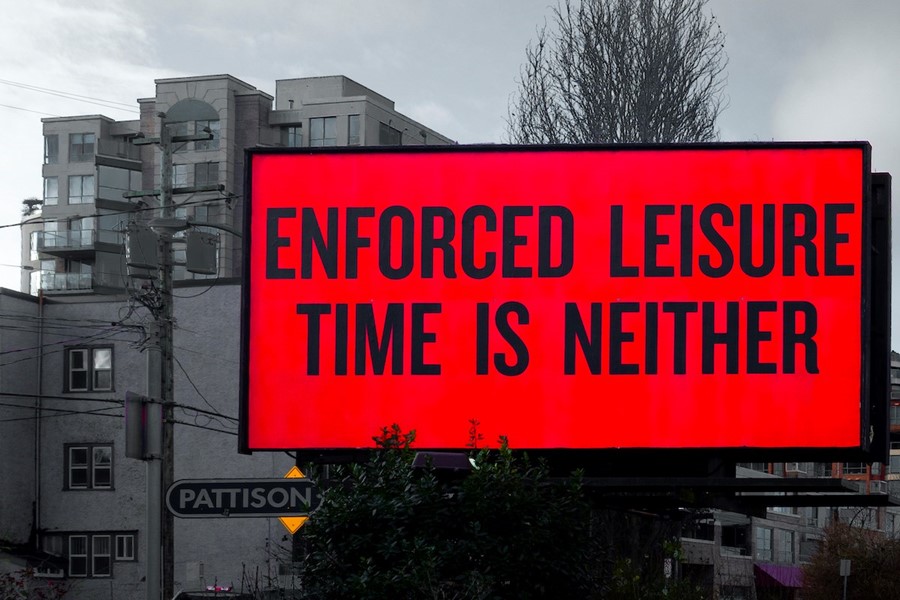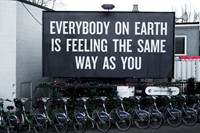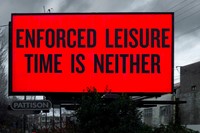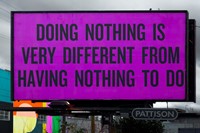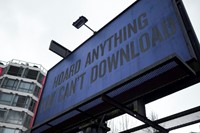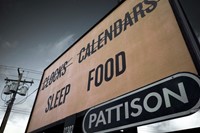As a new book from the publisher Just An Idea Books brings together the Slogans in print, the artist and author joins Amelia Abraham for a conversation
“In 2011 I hosted a ‘YouTube Night’ at a friend’s nightclub,” remembers the artist and author Douglas Coupland. “My MacBook Pro was linked to a jumbo screen, and guests shouted out directions for where to surf next.” Looking back now, Coupland describes the party as “a terrible idea” since going online remains – and ought to remain – a solitary activity, he says. However, one good thing to come out of the whole thing was the poster art he created to advertise the event: a series of posters in the bold sans serif font Knockout, set against coloured backdrops, with statements mostly about the internet age ... slogans that only make sense in the times we’re living in. Like “KNOWING EVERYTHING TURNS OUT TO BE SLIGHTLY BORING,” or “I MISS MY PRE-INTERNET BRAIN,” for example.
The posters were stuck up all over Vancouver, the city where Coupland lives, and while they seemed to resonate with people, others were confused, wondering aloud: Is the author of Generation X becoming an artist? Undeterred, over the next three years, Coupland wrote 148 of his Slogans for what became Slogan Project. Since then, he’s created many more and shown them in museums and gallery spaces as well as on public billboards. Now, a new book from the publisher Just An Idea Books brings together the Slogans in print, including an introduction written and art directed by Peter Saville after Coupland’s visual style, plus ten brand new Slogans. The book is part of a new series curated by Just An Idea Books also featuring the artists So Shibuya, Nicole Mclaughlin, Eric Ng and Louis Géraud-Castor. Below we talked to Coupland about his influences and the concept of information overload.
Amelia Abraham: What is your process for writing the slogans?
Douglas Coupland: The core idea is always to think of statements that would make no sense to someone 20 years ago. The first I wrote was, “I miss my pre-internet brain,” which was from almost a decade ago. Believe it or not, most people back then thought that was ridiculous. Now nobody does.
AA: Where do you get your inspiration?
DC: The word ‘inspiration’ doesn’t feel applicable here. They always seem to stem from meditations on a specific situation such as Grexit or ecology or robotics. In the case of Grexit came ‘Doing nothing is very different from having nothing to do’ which became the mantra of Covid. Specific observations usually end up having broader meanings.
AA: Are these observations or provocations?
DC: Both, but the provocations are more fun. Statements like, “Healthy people are bad for capitalism,” which makes people angry – but, to be honest, it’s true. It just is, and it exposes deep flaws in massive systems, in this case the US medical system.
AA: You’ve said you’re inspired by Jenny Holzer, which other artists influence you as an artist?
DC: Again, inspire feels like the wrong word. For me it’s more like, who gave me permission to go in a certain direction. Jenny Holzer, yes, but also Warhol. It always strikes me as odd that Warhol is such a big influence to absolutely everybody to the point that nobody ever bothers to mention him. He’s oxygen.
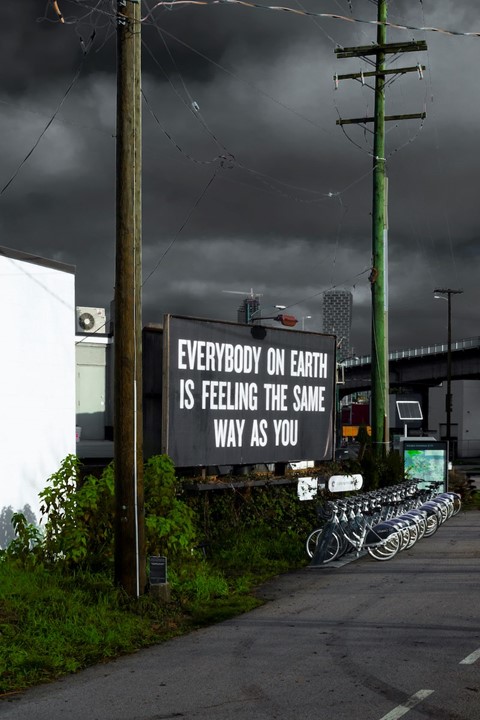
AA: What distinguishes advertising from art?
DC: With art you’re not selling anything.
AA: I remember interviewing you eight years ago about The Age of Earthquakes and being surprised and humbled that you were writing things down, as well as me writing down what you said, as was supposed to be the case. This isn’t to suggest that I said anything interesting but that you are someone who is very interested in the world, hungry for information. Is this still the case? Do you carry a notepad everywhere?
DC: I use my iPhone these days – progress – but ideas are everywhere, and if you don’t capture them, they’re gone, and if you stop noting them for too long you’ll probably stop having ideas altogether. There’s that slogan in this project that reflects this. “The world sends you signals, but if you stop looking, it stops.”
AA: What was the last thing you wrote down?
DC: “The ultimate form of being able to do something without having to actually do anything is to be kidnapped.”
AA: You’ve long talked about information overload and now it feels more overwhelming than ever. Is there an antidote for historical overdosing? What would you prescribe?
DC: I don’t know if it’s more overwhelming than ever, but I do think that being an individual is more work than ever, to the point where it’s easier to subcontract the hard work of being singular to anything crackpot that comes around. Imagine building your identity around being an anti-vaxxer. It’s pathetic, but for some people, that defines them and allows them to function.
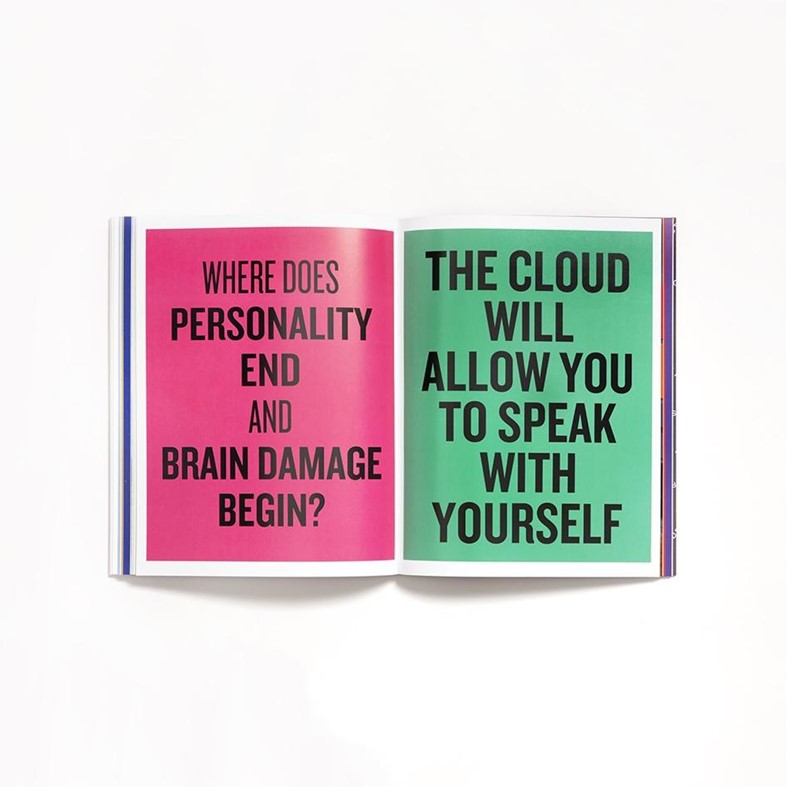
AA: Do you think we have some kind of Stockholm Syndrome when it comes to bad news? This is what “I miss news” makes me think about, as well as friends who are on Twitter at dinner.
DC: It’s perverse but Trump always made the morning news interesting, and a part of me misses that daily trauma. It’s easier to sleep at night with Biden in power, but boy is he boring.
AA: If someone should go and check out one of your books other than Gen X tomorrow, what would it be and why now?
DC: Probably Life After God. It’s like a book that was written on another planet and in a different time stream. It’s a real marker for how much change we’ve all gone through.
AA: Finally, do you have a favourite slogan?
DC: Not really.
AA: OK, one you want to leave us with?
DC: “Don’t be a fucking tool. Get your vaccine.” For obvious reasons.
Douglas Coupland’s new book is published by Just An Idea Books. Head here to buy a copy.
